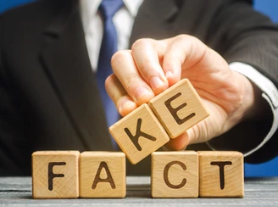Misinformation vs. Disinformation
Misinformation and disinformation are both forms of false information, but there is a key difference between the two. Misinformation is unintentional false information, while disinformation is intentional false information, often spread to deceive people.

Misinformation can be spread in several ways, such as through rumors, gossip, or simply making up false information. It can be difficult to track the origins of misinformation, especially if it is spread online. Disinformation, on the other hand, is often created specifically to deceive people. It can be spread through fake news articles, hoaxes, or propaganda.
The main goal of disinformation is to manipulate people's views or behavior. It can influence elections, sow discord, or even start wars. Disinformation can be very dangerous, as it can cause people to make bad decisions based on false information.
How can you tell if something is misinformation or disinformation?
There is no one-size-fits-all answer, but there are some things you can look for:
- The source: Who is spreading the information? Is it a credible source?
- The content: Is the information accurate? Is it biased?
- The context: When and where was the information published? Why was it published?
If you are questioning the accuracy of a piece of information, research to find the truth. There are many credible sources of information online, and you can also ask someone you trust for their opinion.
It's also important to be aware of how disinformation and misinformation can be used to influence your thoughts and actions. For example, you may see a post on social media designed to get you to react emotionally, even if the information is inaccurate. Be thoughtful about what you share online, and be sure to fact-check any information before you spread it further. It's always better to be safe than sorry.
It is essential to distinguish between disinformation and misinformation, as the two can have very different consequences. It is also essential to be skeptical of any information you encounter, especially if it seems too good to be true.










